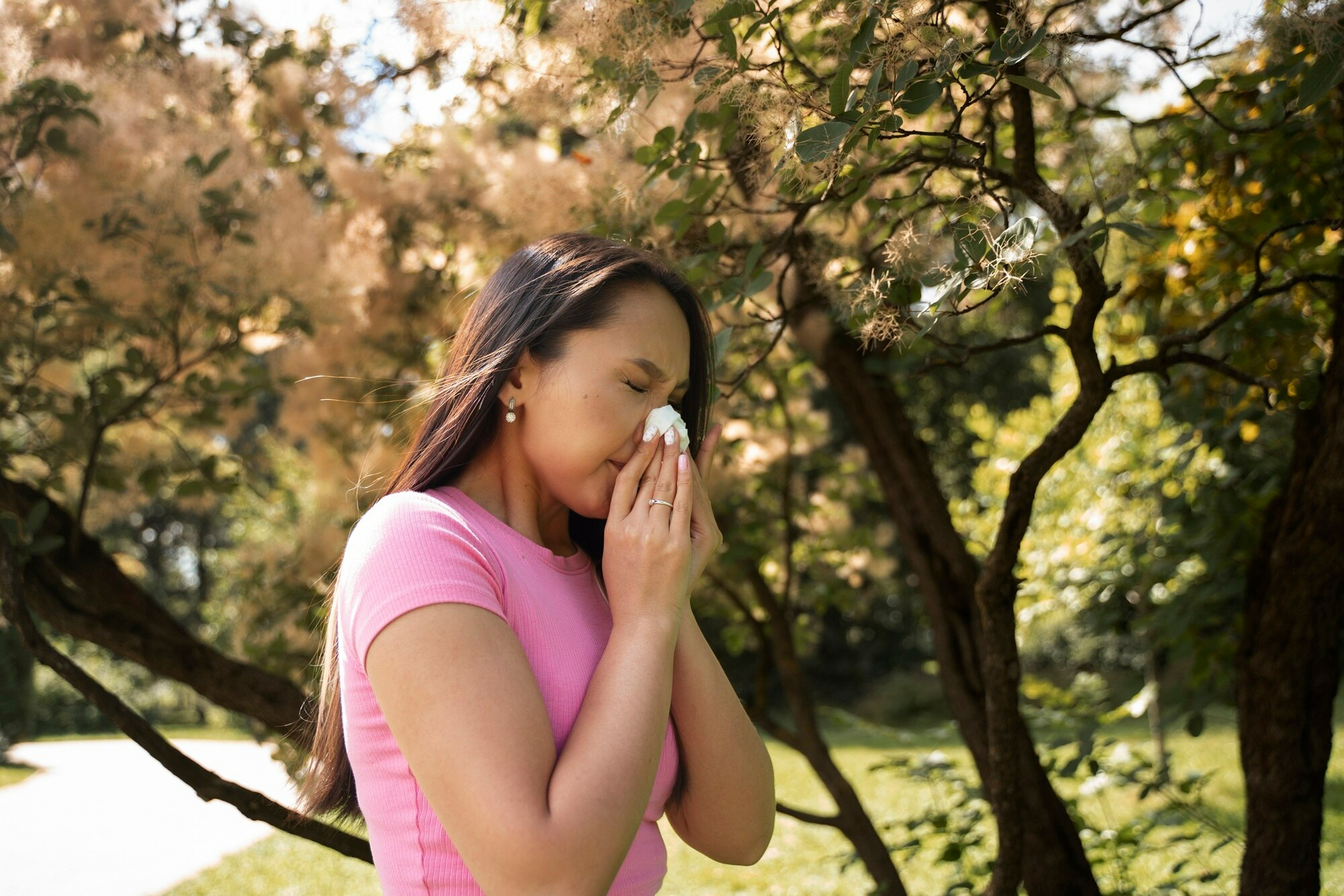Having allergies in San Antonio can feel like a guessing game. You’d think your sneezing would stop if you avoided dogs, but it didn’t. Could it be the local trees? Maybe you should cut out dairy? It’s starting to feel like a very uncomfortable process of trial and error, but you’re really itching for the truth.
With so many potential triggers around, from cedar and oak pollen to pet dander or something you just ate, it’s not always easy to know what’s causing trouble, especially when symptoms overlap. Fortunately, allergy testing provides clear answers. It’s the most effective way to identify what’s triggering your symptoms and start finding real relief.
Book a Test Today and Catch the Real Culprit
Why Allergy Testing Is Essential for Accurate Diagnosis
It's easy to feel stuck when the lines between symptoms blur, when itchy eyes, rashes, or an upset stomach can come from anywhere.
Allergy testing removes the guesswork and delivers conclusive information.
Through allergy testing, your healthcare provider can:
- Clarify confusing symptoms:
Sneezing, itching, or bloating can come from different sources, such as pollen, pets, or food. These reactions often feel similar, but allergy tests can help tell them apart.
- Identify specific allergens: Instead of relying on trial and error, you get clear results about what allergen your body reacts to.
- Enable targeted treatment:
With accurate diagnosis, your care team can recommend targeted solutions like medications, immunotherapy, or lifestyle changes that actually work for your case.
- Put you in control:
Knowing your triggers helps you make smarter choices to reduce symptoms and feel better every day.
Common Allergy Triggers in San Antonio
Allergy testing in San Antonio is essential, as certain allergens are more common due to our unique climate and environment. Local allergists often test for these usual suspects because they frequently trigger reactions in the area:
- Tree and Plant Pollen
- Mountain cedar, oak, ash, elm, and pecan trees release heavy pollen, especially during certain times of the year.
- Seasonal allergies can hit hard, causing sneezing fits, itchy eyes, and congestion that can last weeks.
- Indoor Allergens
- Pet dander, dust mites, and mold can trigger year-round symptoms.
- With the warm Texas climate, indoor allergens can build up quickly if not managed properly.
- Food Allergies
- Common culprits include dairy, wheat, peanuts, shellfish, and egg.
- Allergic reactions from mild to life-threatening need proper diagnosis and treatment.
Type of Allergy Tests
Each allergy test is designed to uncover different types of allergic reactions, whether they show up on your skin, in your nose and airways, or after a meal.
Here’s a quick overview of the most
common allergy tests:
What Your Allergy Test Results Can Reveal
Pollen Allergies: Identifying Seasonal Triggers
Living in San Antonio comes with a heavy dose of pollen, especially from mountain cedar, oak, and ragweed. If your symptoms tend to spike during certain months, allergy testing can help identify the specific pollen types you’re reacting to.
The pollen allergy test can reveal:
- Whether you’re allergic to tree, grass, or weed pollens.
- When your allergy season is most likely to hit.
Why it matters: Knowing which type of pollen you’re sensitive to helps you prepare in advance, such as taking medications early,
checking pollen counts and forecasts, or using an air purifier during peak seasons.
Pet Allergies: It’s Not the Fur
Many people allergic to pets usually blame the fur, but it’s the dander, saliva, or urine proteins that trigger reactions. Allergy testing helps confirm which animals produce the allergens that affect you.
The pet allergy test can reveal:
- Whether you’re reacting to dogs, cats, birds, or other common household pets.
- The severity of your sensitivity to each animal.
Manage pet allergies by:
- Using HEPA filters in your home.
- Bathing and grooming pets regularly (or have someone else do it).
- Creating pet-free zones, especially your bedroom.
Food Allergies: Finding the Culprit
Sometimes, the food you love doesn’t love you back. A
food allergies specialist can help uncover your hidden food sensitivities through food allergy testing and guide you toward a safer, more comfortable diet.
The food allergy test can reveal:
- Specific food triggers such as peanuts, tree nuts, shellfish, milk, eggs, soy, or wheat.
- Whether reactions are immediate or delayed
This test is life-changing because:
- You’ll know what foods to avoid.
- You can plan meals with confidence, whether at home or dining out.
- Managing your food allergies can dramatically improve your quality of life.
What to Do After Getting Your Allergy Test Results
Once you receive your allergy test results, it’s time to turn that information into action. This time, you’re no longer guessing, and you now have a clear path forward. Whether your results point to pollen, pets, or food, the next step is working with your allergy specialist to create a personalized plan that works for you.
Use Your Results to Build a Smarter Treatment Plan
Based on your specific triggers, your provider may recommend:
- Medications like antihistamines, decongestants, or nasal sprays to manage day-to-day symptoms.
- Lifestyle adjustments such as avoiding specific foods, using air purifiers, or changing your cleaning routine.
Partnering with Apex Allergy and Asthma
Our
Apex Allergy and Asthma specialists don’t just hand you your test results. We walk you through them, explain their meaning, and help you build a practical plan that fits your life.
But don’t just take our word for it. Here’s what some of our patients have to say about their experiences with our clinic:
Whether you need medication management, allergy shots, or advice on avoiding triggers, our team is here to support you at every step.
Find Your Triggers, Find Your Relief
Allergy testing isn’t just about finding what makes you sneeze; it also helps you take control of your health. By identifying the exact cause of your symptoms, you can stop guessing, start treating, and finally enjoy more symptom-free days. Whether it’s seasonal pollen, pet dander, or food sensitivities, knowing your triggers is the first step toward real relief.
If you’re tired of dealing with mysterious sniffles, rashes, or reactions, our team at
Apex Allergy and Asthma
is here to help. Schedule an appointment with our experts today and get the answers and support you need to feel better, breathe easier, and live more comfortably.
Get Tested and Reclaim Your Well-Being








